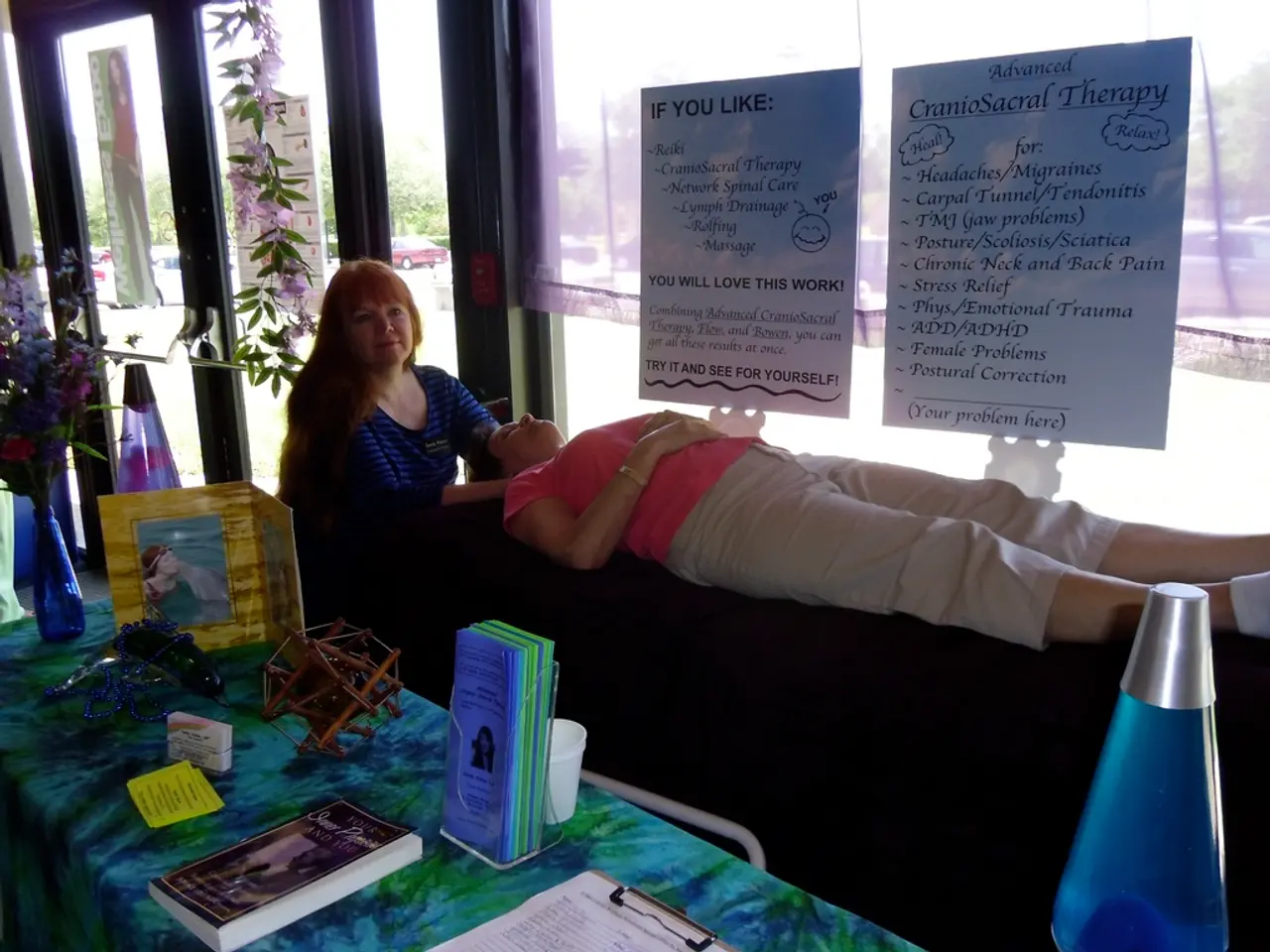Emotional Control Through Action
In a world where mental health and emotional well-being are becoming increasingly important, scientific evidence continues to support the positive impact of exercise on these aspects of our lives. A comprehensive analysis by Mandy Brincat, a Gestalt psychotherapist, reveals how regular physical activity can significantly improve emotional regulation and mental health.
The connection between the mind and body is crucial in this context. Physical movement increases levels of neurotransmitters like serotonin and dopamine, essential for emotional stability and mental clarity [1]. These neurotransmitters play a significant role in regulating mood, anxiety, attention, motivation, and reward pathways.
Endorphins, natural chemicals in the brain, are released during physical movement, improving mood and reducing pain [2]. These endorphins act as natural painkillers and mood elevators, producing feelings of well-being and emotional balance.
Serotonin helps regulate mood and anxiety, while dopamine is critical for attention, motivation, and reward pathways. Both neurotransmitters are boosted by physical activity [1][2]. Furthermore, exercise stimulates the production of Brain-Derived Neurotrophic Factor (BDNF), which supports brain plasticity, neuron growth, and memory processing, contributing to improved mental clarity and cognitive function [1][2].
Regular physical activity can also reduce cortisol, the primary stress hormone, thereby improving the body’s ability to manage and recover from stress [3]. This reduction in stress hormones leads to more stable moods and better emotional control.
Empirical studies demonstrate that even short bouts of moderate exercise lead to measurable improvements in mood and emotional control. Consistent exercise over time significantly lowers depression and anxiety symptoms, reducing depression risk by over 20% and anxiety by around 26% in some analyses [3][4].
It's worth noting that these benefits are accessible without intense workouts. Activities like walking, dancing, or cycling at moderate intensity provide these neurochemical and psychological effects and promote resilience in emotional regulation [3].
In conclusion, exercise acts as a potent natural intervention for emotional regulation by enhancing neurotransmitter levels (endorphins, serotonin, dopamine), reducing stress hormones, and supporting brain health, which collectively improve mood, lower stress, and sharpen mental clarity [1][2][3][4].
For those seeking professional support on this issue, Mandy Brincat provides a contact. It's essential to remember that while exercise can significantly improve emotional regulation and mental health, it's just one piece of the puzzle. Good sleep, cognitive function, and emotional regulation are all interconnected, and addressing these aspects holistically is key to maintaining overall well-being.
References:
[1] Verywell Mind. (2023). How Exercise Affects Your Mood. Verywell Health. https://www.verywellmind.com/how-exercise-affects-your-mood-4174328
[2] Cleveland Clinic. (2022). How Exercise Affects Mental Health. Cleveland Clinic. https://my.clevelandclinic.org/health/articles/19144-how-exercise-affects-mental-health
[3] Healthline. (2023). Exercise and Mental Health: How Working Out Boosts Your Brain. Healthline Media UK Ltd. https://www.healthline.com/nutrition/exercise-and-mental-health
[4] Verywell Mind. (2023). How Does Exercise Reduce Anxiety and Depression? Verywell Health. https://www.verywellmind.com/how-does-exercise-reduce-anxiety-and-depression-4174327
- Mindfulness practices and therapy might be further combined with physical fitness-and-exercise routines, as scientific research shows that regular exercise increases levels of neurotransmitters in the mind, enhancing emotional stability and mental clarity.
- Incorporating health-and-wellness components such as mental-health care, mindfulness, and fitness-and-exercise into one's lifestyle can provide lasting improvements in mood, stress management, and cognitive function, as backed by multiple empirical studies.
- Besides traditional therapy methods, seeking professional guidance from a psychotherapist like Mandy Brincat and implementing regular physical activity can work together synergistically to enhance mental health, regulate emotions, and promote overall well-being.




